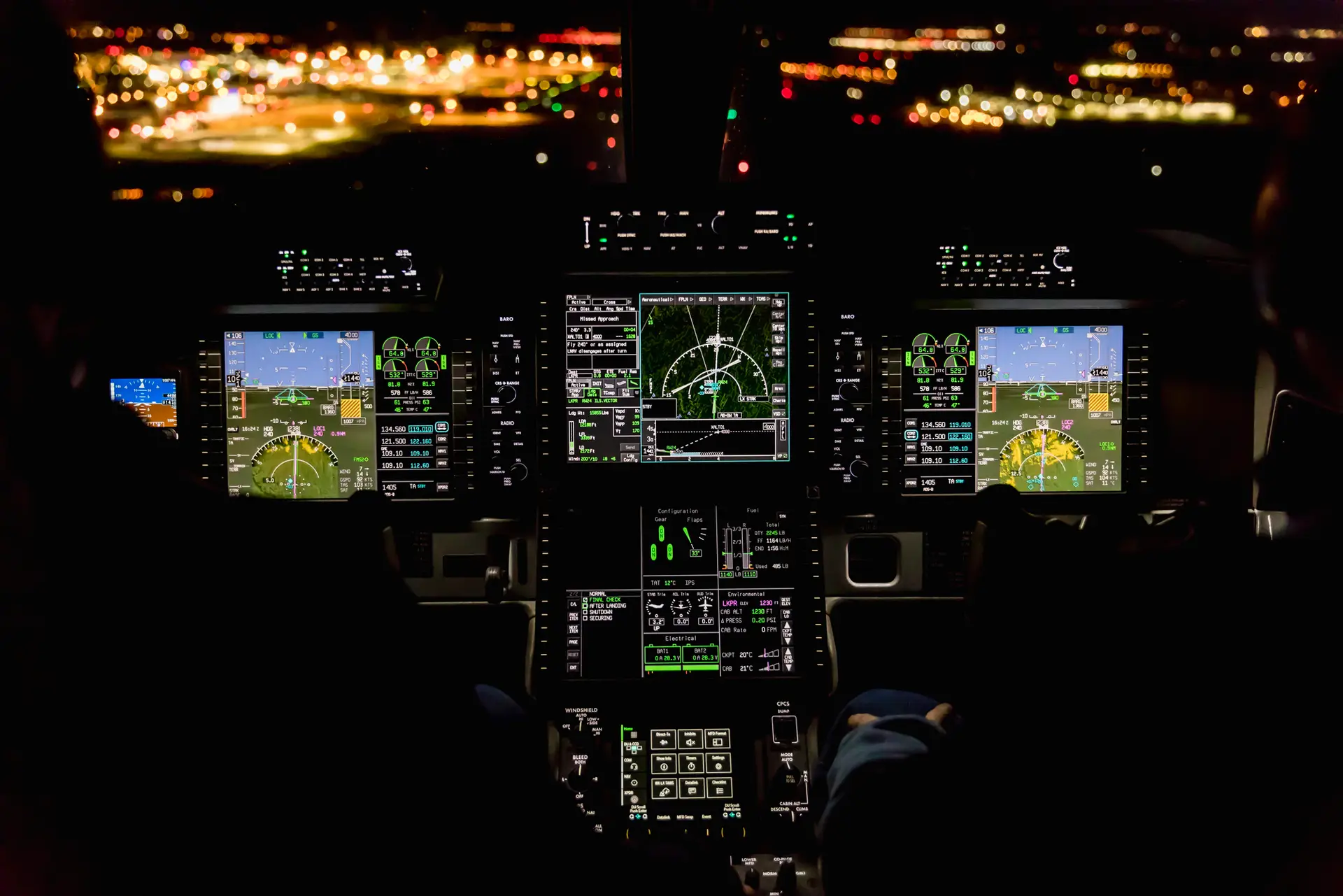Understanding Corporate and Airline Pilot Salaries

- aviatorpro_6714
Choosing a career as a pilot can be an exhilarating decision. However, one of the key considerations is often the salary. A common question that arises in this field is: Do corporate pilots make more than airline pilots?
In this article, we’ll explore the differences in salary between corporate and airline pilots, taking into account various factors that influence earnings in each role.
Understanding the Roles
Before diving into the salary comparisons, let’s briefly understand what these pilots do.
Corporate Pilot Salaries & Duties
Corporate pilots fly private jets owned by businesses or high-net-worth individuals. Their roles often involve flying executives to various destinations, sometimes on very short notice. This means corporate pilots may have less predictable schedules but often enjoy the perks of flying luxurious aircraft and having more personal interaction with passengers.
Airline Pilot Salaries & Duties
Airline pilots, on the other hand, work for commercial airlines. They fly larger planes with more passengers, usually on scheduled routes. Airline pilots typically have more structured schedules and are part of larger flight crews.
Salary Comparison
The question remains: Do corporate pilots make more than airline pilots? The answer isn’t straightforward, as it depends on several factors including experience, aircraft type, and the employer’s size.
Entry-Level Airline Pilot Salaries
For entry-level positions, airline pilots generally start with a lower salary. Regional airlines often pay less compared to larger carriers. In contrast, entry-level corporate pilots may earn a bit more, particularly if they are hired by a large corporation with a significant travel budget.
Experience and Seniority
Experience plays a crucial role in determining salary. Airline pilots can see substantial salary increases with experience and seniority. Major airlines offer competitive salaries and benefits as pilots accumulate flight hours and move up the ranks.
Corporate pilots also benefit from experience, especially if they move to larger jets or more prestigious companies. However, their salary growth can be less predictable and might not always match the long-term earnings potential of airline pilots.
Type of Aircraft
The type of aircraft flown can significantly impact a pilot’s salary. Airline pilots flying international routes on large aircraft such as the Boeing 777 or Airbus A350 are likely to earn more than those flying domestic routes.
Similarly, corporate pilots flying large jets such as Gulfstream or Bombardier models can earn higher salaries compared to those flying smaller planes. The complexity and responsibility associated with larger aircraft often come with better compensation.
Employer and Benefits
The employer can also influence salary. Large airlines like Delta, United, or American Airlines offer comprehensive benefits packages, including health insurance, retirement plans, and travel perks. These benefits can be a significant part of a pilot’s overall compensation.
Corporate pilots working for a Fortune 500 company may receive similar benefits, but those working for smaller companies might not enjoy the same level of perks.
Lifestyle and Job Satisfaction
While salary is important, lifestyle and job satisfaction should also be considered when comparing corporate and airline pilot careers.
Work-Life Balance
Airline pilots often have more predictable schedules, which can be beneficial for those seeking a better work-life balance. However, the downside is that they might spend several days away from home.
Corporate pilots may have less predictable schedules, with flights often scheduled on short notice. This can make it challenging to plan personal time, but it also offers a dynamic work environment that some pilots find appealing.
Career Progression
Career progression can differ significantly between corporate and airline pilots. Airline pilots often have clear career paths, with opportunities to move from first officer to captain and potentially to larger aircraft or international routes.
Corporate pilots may progress by moving to larger companies or transitioning to more prestigious aircraft. However, the path might not be as structured as in airlines.
Personal Preferences
Ultimately, the choice between becoming a corporate or airline pilot may come down to personal preferences. Some pilots thrive in the structured environment of commercial airlines, while others enjoy the flexibility and variety of corporate flying.
Conclusion
So, do corporate pilots make more than airline pilots? The answer varies based on a multitude of factors, including experience, aircraft type, and employer. While corporate pilots might earn more initially, airline pilots often have greater long-term earning potential due to structured career progression and benefits.
When choosing between a career as a corporate or airline pilot, it’s important to weigh not only the potential salary but also lifestyle considerations, job satisfaction, and personal preferences. Both paths offer unique opportunities and challenges, and the right choice depends on what you value most in your career.
Whether navigating the skies in a corporate jet or commanding a commercial airliner, a career as a pilot can be both rewarding and fulfilling.



